
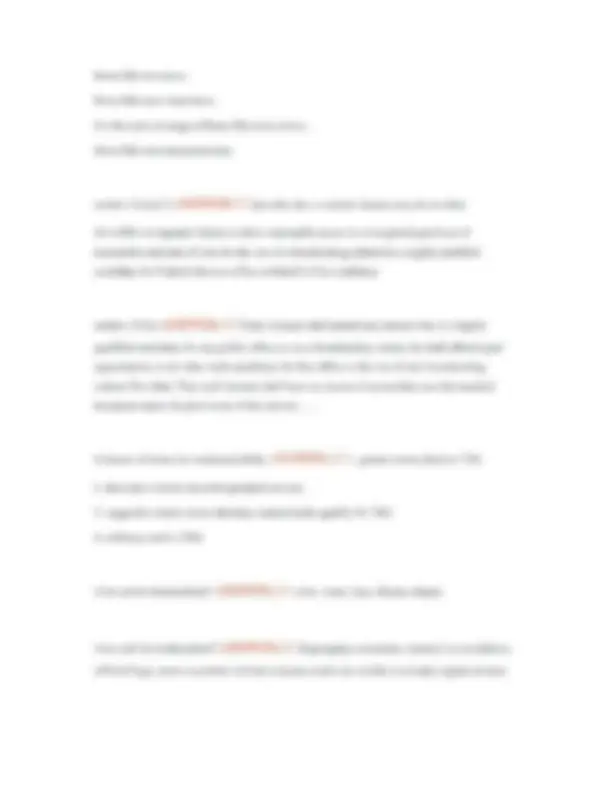
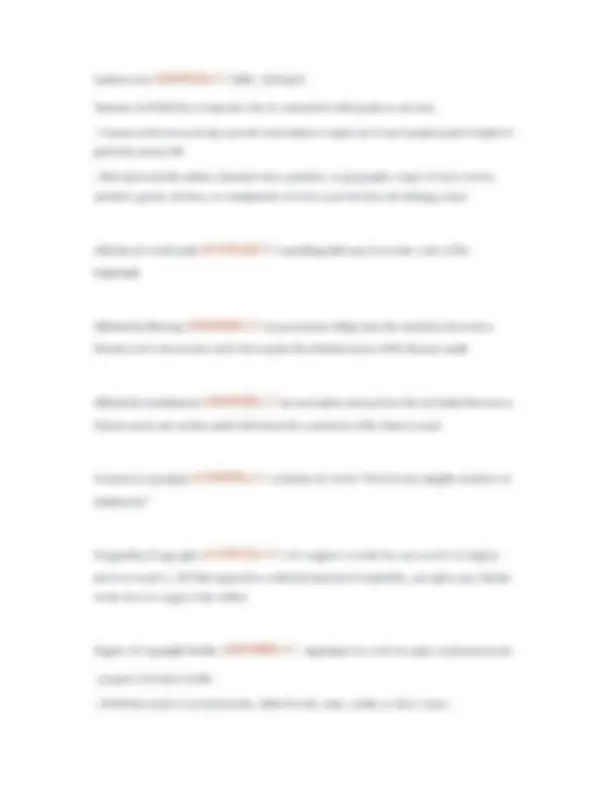
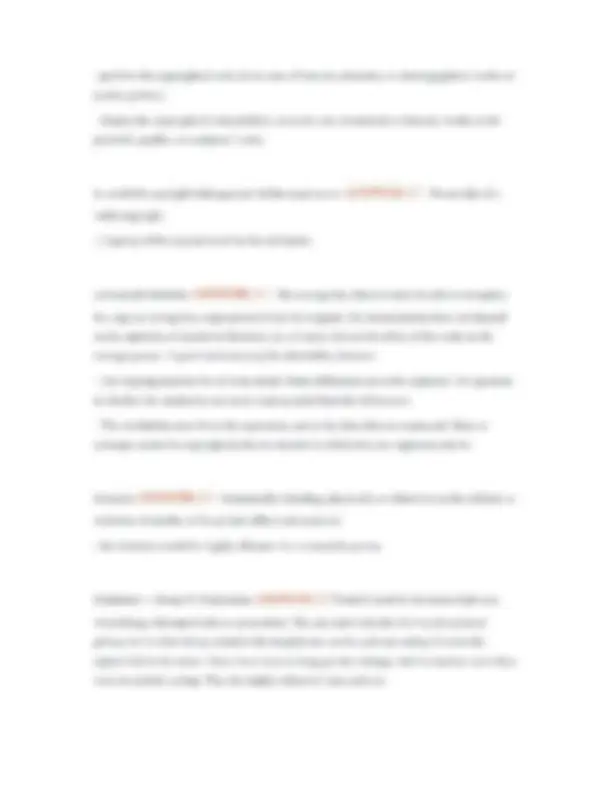
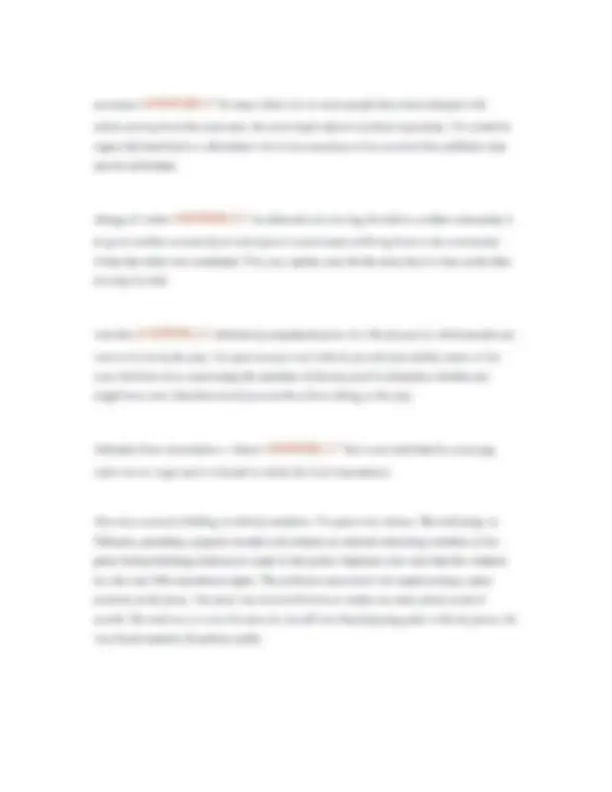
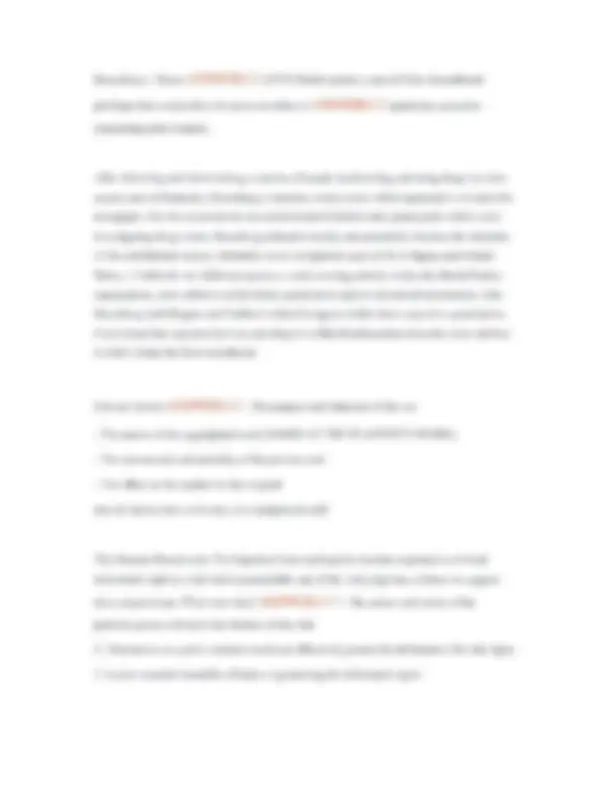
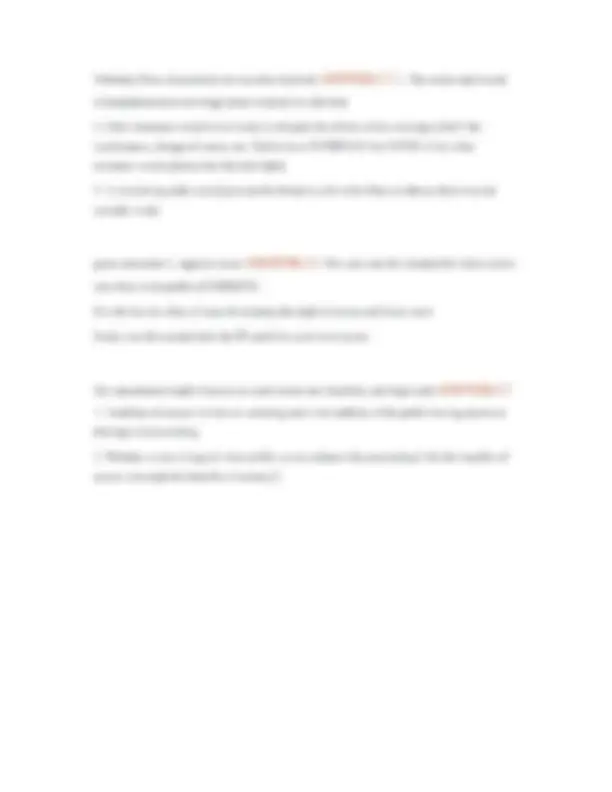


Study with the several resources on Docsity

Earn points by helping other students or get them with a premium plan


Prepare for your exams
Study with the several resources on Docsity

Earn points to download
Earn points by helping other students or get them with a premium plan
Community
Ask the community for help and clear up your study doubts
Discover the best universities in your country according to Docsity users
Free resources
Download our free guides on studying techniques, anxiety management strategies, and thesis advice from Docsity tutors
JOMC 486 Mass Media Law-Final Exam with Questions and Answers FTC policy on deceptive advertising: ANSWER✓✓ 1. There must be a representation, omission, or practice that is likely to mislead the consumer 2. The act or practice must be considered from the perspective of a reasonable person 3. The deception must be material McNeil v. Pfizer ANSWER✓✓ A company launched an advertising campaign for Listerine Mouthwash, in which it was implied that listerine is as effective at fighting plaque and gingivitis as floss. A competing floss company sued for false advertising in violation of the Lanham act, and unfair competition in violation of state law. Judge recognized floss company's claim of literal falsity and on its implied falsity claim. In the end, Listerine ads could still use their studies to support the claim that their product fights plaque and gingivitis, as long as it does not invoke a comparison to floss (name the case)
Typology: Exams
1 / 10

This page cannot be seen from the preview
Don't miss anything!






